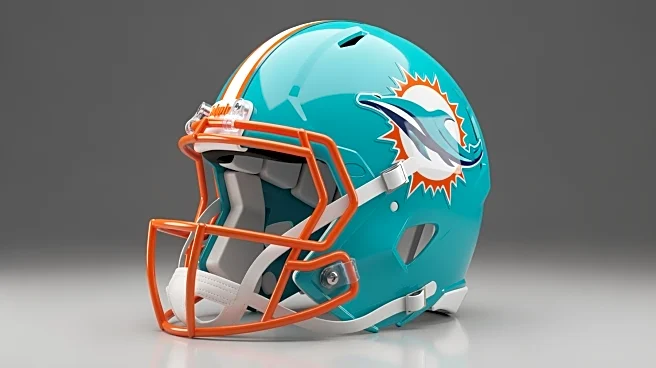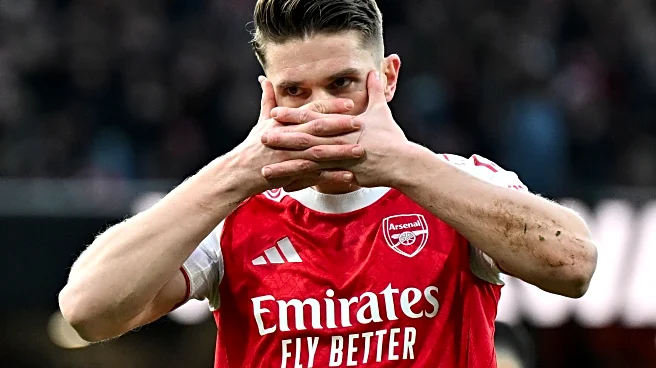What's Happening?
As the NFL trade deadline on November 4 approaches, the Miami Dolphins have made it clear that Jaylen Waddle, their standout wide receiver, will not be traded. According to NFL.com's Ian Rapoport, the Dolphins have rejected multiple trade inquiries, emphasizing
Waddle's importance to their long-term plans. Despite the team's current 1-5 record, Miami views Waddle as a crucial component of their future success. Since being drafted sixth overall in 2021, Waddle has consistently performed at a high level, surpassing 1,000 receiving yards in three of his four seasons. His role has become even more vital following Tyreek Hill's season-ending knee injury.
Why It's Important?
The decision to retain Jaylen Waddle highlights the Miami Dolphins' commitment to maintaining a competitive team despite their current struggles. Waddle's performance and potential make him a valuable asset, and trading him would not align with the team's strategy to build a strong offensive lineup. Financially, trading Waddle would result in a significant dead cap hit, making it an impractical move. His continued presence is crucial, especially with Tyreek Hill's injury, as Waddle's leadership and skills are needed to keep the team's offensive capabilities intact.
What's Next?
With the trade deadline approaching, the Dolphins are likely to focus on strengthening their roster around Waddle and addressing other areas of need. The team may explore other trades or signings to bolster their lineup, particularly in light of Hill's absence. The Dolphins' management will need to navigate these challenges while ensuring they remain competitive in the league.
Beyond the Headlines
The decision to keep Waddle also reflects broader trends in the NFL, where teams are increasingly valuing young, dynamic players as foundational pieces. This move could influence other teams' strategies as they consider the balance between immediate gains and long-term development. Additionally, Waddle's retention underscores the financial complexities teams face when managing player contracts and salary caps.















